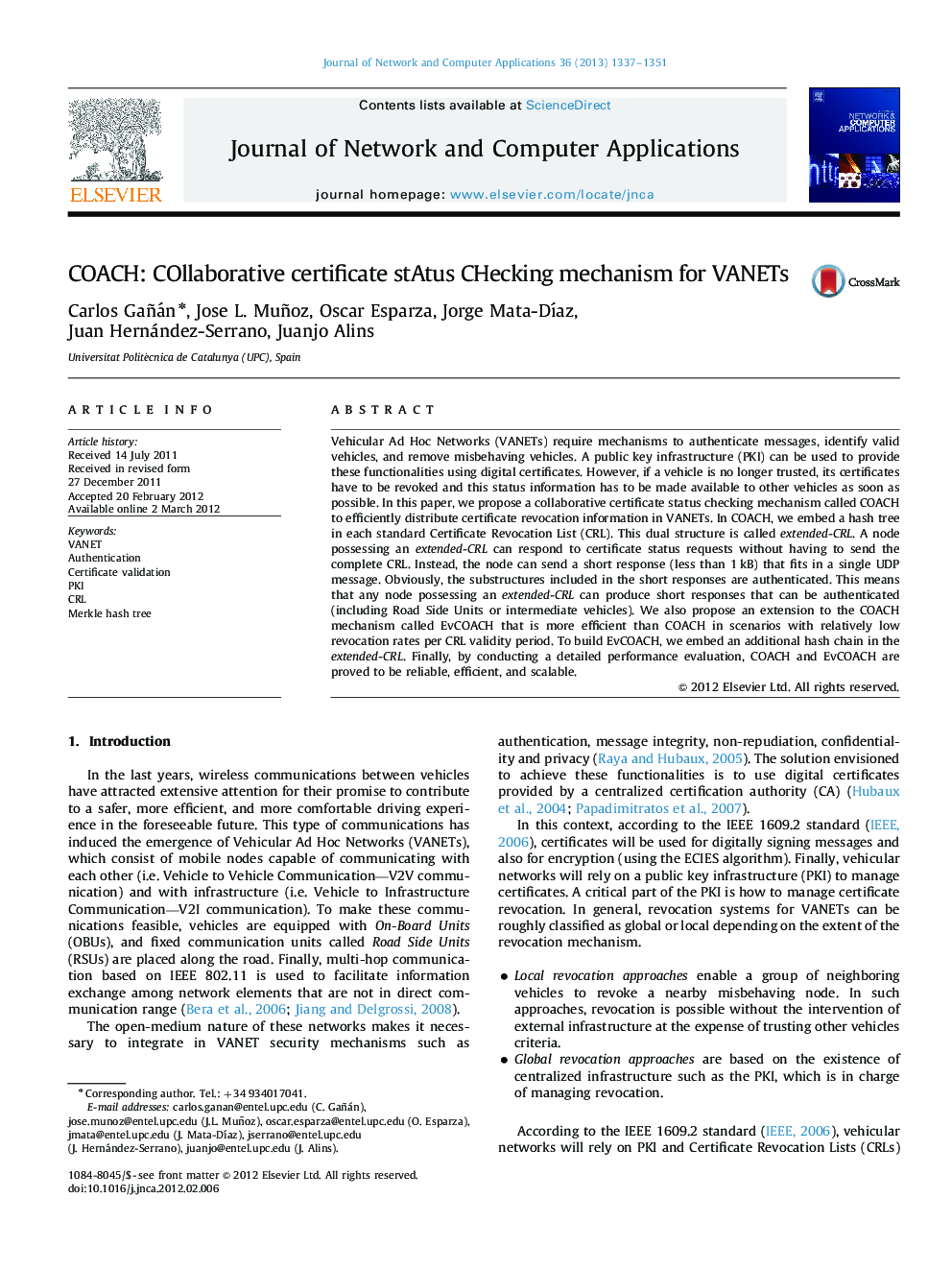| Article ID | Journal | Published Year | Pages | File Type |
|---|---|---|---|---|
| 459341 | Journal of Network and Computer Applications | 2013 | 15 Pages |
Vehicular Ad Hoc Networks (VANETs) require mechanisms to authenticate messages, identify valid vehicles, and remove misbehaving vehicles. A public key infrastructure (PKI) can be used to provide these functionalities using digital certificates. However, if a vehicle is no longer trusted, its certificates have to be revoked and this status information has to be made available to other vehicles as soon as possible. In this paper, we propose a collaborative certificate status checking mechanism called COACH to efficiently distribute certificate revocation information in VANETs. In COACH, we embed a hash tree in each standard Certificate Revocation List (CRL). This dual structure is called extended-CRL. A node possessing an extended-CRL can respond to certificate status requests without having to send the complete CRL. Instead, the node can send a short response (less than 1 kB) that fits in a single UDP message. Obviously, the substructures included in the short responses are authenticated. This means that any node possessing an extended-CRL can produce short responses that can be authenticated (including Road Side Units or intermediate vehicles). We also propose an extension to the COACH mechanism called EvCOACH that is more efficient than COACH in scenarios with relatively low revocation rates per CRL validity period. To build EvCOACH, we embed an additional hash chain in the extended-CRL. Finally, by conducting a detailed performance evaluation, COACH and EvCOACH are proved to be reliable, efficient, and scalable.
